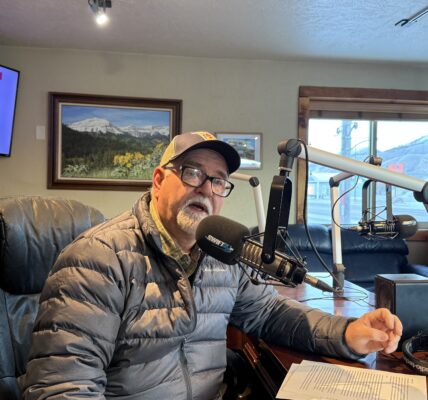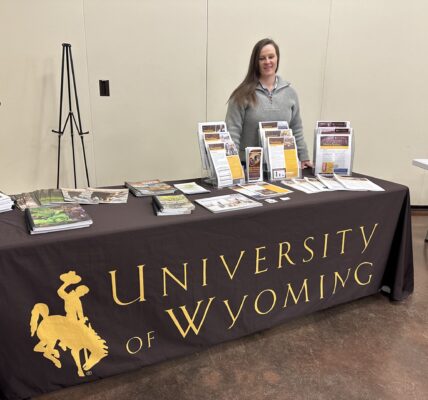
• ‘School boards can handle it’
By Hannah Shields
Wyoming Tribune Eagle
Via-Wyoming News Exchange
CHEYENNE — A draft bill that addresses parental rights in education raised controversy on Tuesday of whether lawmakers overstepped their boundaries in policy making that should be left to school districts.
The last time members of the Legislature’s Joint Education Committee met, in August, lawmakers voted to split the draft bill in two, separating language that banned topics of gender identity and sexual orientation from kindergarten through the third grade.
This separated language, however, died in a vote of 6 to 6, and the gutted version of the bill draft, which allows parents access to their child’s medical and educational school records, moved forward.
This version of the draft legislation, the Parental Rights in Education-1 bill, was advanced by lawmakers during their Tuesday meeting in Cheyenne, with an added amendment co-equalling guardians with parents in the bill.
Sen. Chris Rothfuss, D-Laramie, raised concern over an 18-year-old student’s wish to privatize their mental health issues from their parents. In his interpretation of the draft legislation, a school would be obligated to share the health status of an 18-year-old with their parents.
“The way I read this, you would be obligated to do it regardless of that 18-year-old’s interest,” Rothfuss said. “This legislation is effectively eliminating any student opinion or interest.”
The Family Educational Rights and Privacy Act provides that access to education records, and the disclosure of personal information from those records transfers from the parent to the student after they’ve turned 18, or at any age when they attend a postsecondary institution.
Ryan Thomas, superintendent for Uinta County School District 1, told lawmakers that as long as the child is claimed on the parents’ taxes, the parents are entitled to know the status of their child’s mental health.
“That’s one of our biggest challenges now with FERPA,” Thomas said. “The position that we’ve always taken is right in the statute. If parents claim that student on their taxes, we provide that information to the parent.”
Tug of war between state and school districts
Current and former school district members said their primary issue with the bill was the overlap it would create between state and school district policies.
Thomas said he’s concerned over the “duplicity” in policy the proposed legislation created, since a lot of policies regarding parental rights were already in place.
”My testimony today is really that policy exists, state and federal law exists, that already protects the rights of our parents,” Thomas said. “Our district already has policies in place that allow safeguards and due process for parents.”
Rep. Ryan Berger, R-Evanston, asked the superintendent if he knew of any districts in Wyoming that didn’t have similar parental rights policies in place. Thomas said no, but he had “heard on national media some horror stories.”
“I can tell you that’s heightened our discussion about how we talked to our parents,” Thomas said.
A couple of those who testified cautioned the committee against creating legislation that should be left to the school boards.
Mary Schmidt, a Natrona County School District Board of Trustees member, told lawmakers to “drop this bill” altogether.
“I don’t necessarily trust all of you to make the law as this law has been written and guided. I think we can do it ourselves,” Schmidt said. “It’s ultimately our job as a trustee to write the policies to protect those parental rights. And if our constituents in our county don’t believe we’re doing it, then in November they can vote us out.”
Kirk Schmidt, who worked in the Lander public school system for 38 years, believes parental rights in education is a local issue and should be left up to the school boards.
“There isn’t many of us, including yourselves, (who) like top-down management,” Schmidt said. “School boards can handle it.”
Health care screenings in school
One portion of the draft bill provides an opt-out provision for parents who do not want their children to be administered a “well-being questionnaire” to assess the student’s overall physical, mental and emotional health, as well as a health screening to determine medical services needed for students.
Parents urged lawmakers to consider an opt-in provision, instead, which would require schools to obtain parents’ consent before administering the listed health services.
Jan Loftus, with the Women of Sheridan County Legislative Action Committee, said the organization was in support of the bill and advocated for an opt-in provision for parents regarding health screenings and services.
“Since the school function is education, if health care is taking place there it should be approved by the parents,” Loftus said.
Tate Mullen, with the Wyoming Education Association, expressed concern over allowing parents to opt their kids out of the health care screenings, which he said “are the front-line defense for catching cases of abuse and neglect.”
“If we provide an option for an opt-out in there, we do run the risk of missing a lot of these cases of abuse and neglect for first detection,” he said.
Mullen referenced evidence that was previously provided by the Wyoming Department of Family Services in another meeting, who said their “caseload plummeted” in 2019 to 2020 “because of the lack of those screenings” during the pandemic.
Co-Chairman Sen. Charles Scott, R-Casper, asked Mullen about the role of teachers as mandatory reporters in detecting potential abuse and neglect in their students.
“The teachers (are) probably the one that will pick up on that, because they see the kids regularly and every day,” Scott said.
Mullen acknowledged teachers play a role in detecting those cases in students, but oftentimes cases of abuse and neglect “aren’t very evident upfront.”
Can’t legislate everything
In their discussion, walking through the bill and adding amendments, lawmakers in the committee realized a point that was mentioned earlier during public testimony: “You can’t make a policy that’s going to take care of all problems.”
This concern became prevalent as Sen. Scott suggested an amendment in the bill that specifically listed health care treatments that did not require parental consent. Several lawmakers argued against the amendment, saying a line item list created legal issues for all treatment that wasn’t included in the bill.
“It’s almost impossible to legislate for every single situation,” said Rep. Landon Brown, R-Cheyenne.
Sen. Scott reasoned that it was needed in the bill to protect school nurses but admitted he was nervous about putting it in the bill.
”It’s damned if you do, damned if you don’t. I thought in this case, it was better in terms of getting the bill approved to put exemptions,” he said. Rothfuss said the draft legislation was becoming more of a concern if it needed to contain a line-item list.
“This level of detail and complexity is exactly the type of thing that should be coming down in local school board policies,” Rothfuss said. “Imagine if the federal government wrote this bill, and said, ‘Wyoming, you’re going to follow these policies, and here’s your policy on skin lesions.’.. I would assume and hope we’d rail against that.”
In a vote of 10 to 6, the bill draft was advanced by the committee to be considered in the 2024 session.





